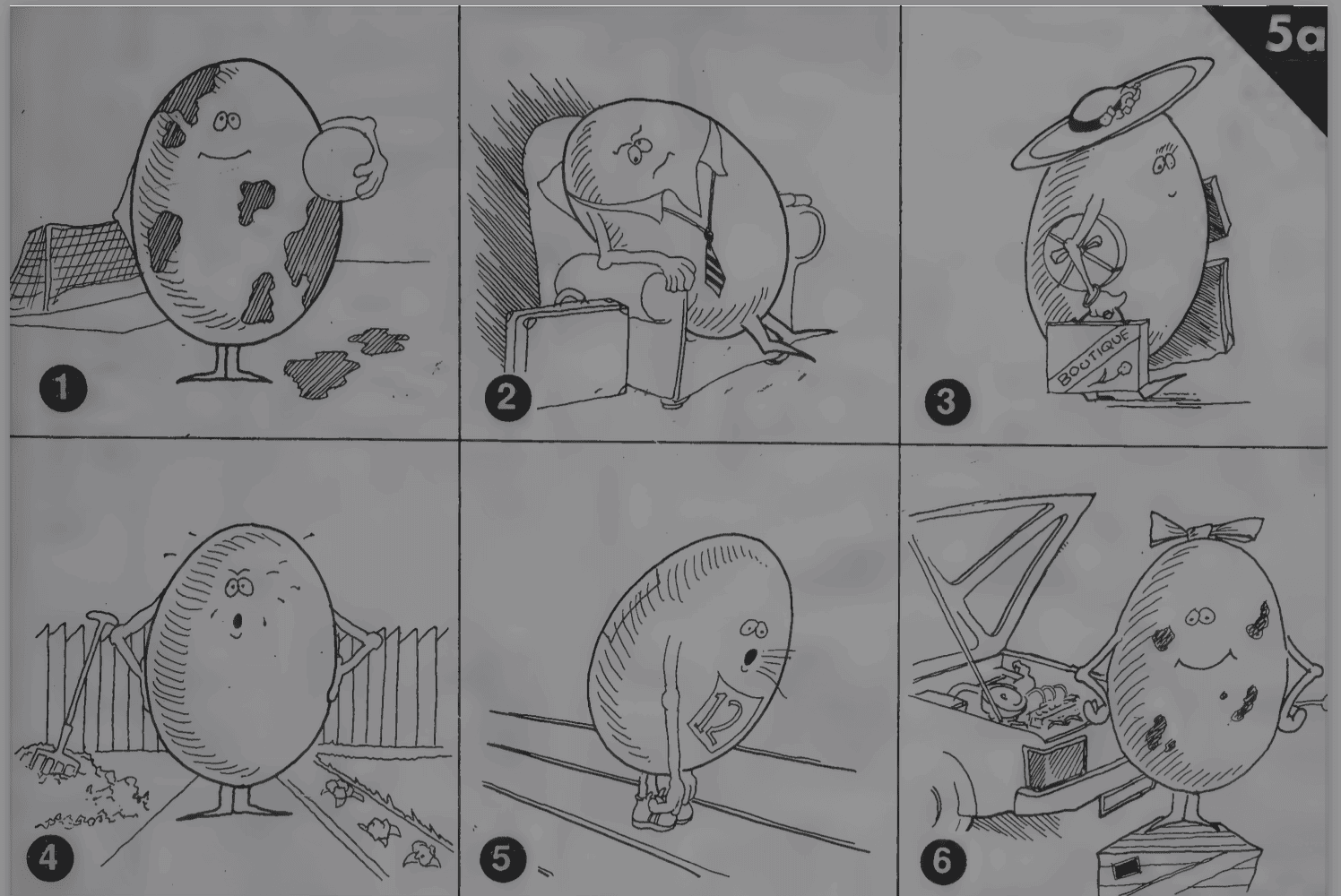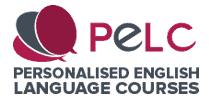3 Awesome Present Perfect Continuous Exercises to use with Students
Many moons ago, I wrote a post on the tenses and aspects I believe English language learners should devote the most attention to. One of the four tense aspects I nominated was the present perfect continuous. With the importance of the present perfect progressive in mind, I’d like to share three present perfect continuous exercises which teachers can easily implement in the classroom. These exercises will enable students to fully internalise the present perfect continuous tense through speaking and interaction.
Present Perfect Continuous Exercises to use with groups of students in the classroom
Here are three present perfect continuous exercises which teachers of English can use with groups of students who are either at the intermediate or advanced level. All materials and solutions, or possible solutions, can be found under the instructions. They can also be found in this downloadable PDF.
Exercise 1. Explaining Present Expertise or Knowledge - Interviews
- I + have/’ve been + [present participle (root form of verb + -ing)] For example:
I’ve been learning German for 10 years - Explain to students that one major use of the present perfect continuous is to draw attention to the repeated or continuous nature of an action or habit which results in present expertise or knowledge
- Outline several job opportunities on the board. Each occupation requires more than one area of expertise. For example: Tour guide in Rome / English teacher at a summer school for 7-9 year olds in China / Copywriter for coaches (e.g. life coaches, health coaches) / Waiter/waitress in a coffee house
- Put students in pairs/groups of three. Inform them that they will be competing against each other for the job they’re given
- Assign one job opportunity to each group and give them five minutes to make notes based on a set of cues to speak about their expertise. The information in the cues is for the purpose of generating sentences in the present perfect continuous tense only. Students may add more information that’s either related or unrelated to the cues
- Encourage students to focus on giving at least three sentences in the present perfect continuous which emphasise ‘experience up to now’. This may be an appropriate time to mention that the past simple and present perfect continuous often go together when talking about experience. Encourage students to use the past simple as well
- Carry out the interviews. Allow students in other groups to ask follow-up questions
- Allow students in other groups to vote for the candidate they would give the job to based on the best speech and answers to questions
- Make notes on any errors students make and do error correction after each round of interviews
Cues for the jobs
Job 1 - Tour guide in Rome
Set of cues 1
- work in Tourist Information Centre in Rome - five years
- drive buses - 8 years
- live in Rome - 5 years
Set of cues 2
- give guided tours in Rome - one year
- learn Spanish, French, German - since age 5
- live in Rome - 4 years
Set of cues 3
- give guided tours in Milan - 7 years
- study history of Rome - childhood
- looking at moving to Rome - recently
Job 2 - English teacher at a summer school for 7-9 year olds in China
Set of cues 1
- look after neighbour’s daughter - few years
- learn major European languages - 15 years = passion for languages!
- learn Chinese - five years
Set of cues 2
- teach English to adults as a volunteer - 3 months
- live Vietnam - 4 months
- learn Chinese - 1 month
Set of cues 3
- learn Chinese - 1 month
- work - language schools in UK - 9 years
- teach adults - last 5 years
Job 3 - Copywriter for coaches (e.g. life coaches, health coaches)
Set of cues 1
- real estate copywriting - 4 years
- write self-published novels - 8 years
- offer life coaching services - 6 months
- qualified life coach
Set of cues 2
- SEO copywriting - 6 years
- write scientific articles for various journals - 2 years
- offer life coaching services - 2 months
- qualified life coach
Set of cues 3
- Digital copywriting - 10 years
- write lifestyle articles for various newspapers - 2 years
- offer proofreading services - 4 years
Job 4 - Waiter/waitress in a coffee house in London
Set of cues 1
- live England - 6 years
- work cafes - 4 years
- learn English - all life
Set of cues 2
- work fast food restaurants - 9 years
- live England - 3 years
- learn English - all life
Set of cues 3
- work hotel restaurant - since day left school
- live England - 2 years
- learn English - all life
Sample speech based on the job opportunity ‘English teacher at a summer school for 7-9 year olds in China’ (Set of cues 1)
I believe I’m the ideal candidate for the job because I’ve been looking after my neighbour’s daughter, who’s seven, for a few years. I really like children and I’m a natural with them.
I may not be a qualified English teacher but I’ve been learning several major European languages, like German and Italian, for 15 years. I have a real passion for languages and I want this to rub off on learners at the summer school. The main thing is - I know the best strategies to learn languages and I think that this counts for more than having an English language teaching qualification.
I’ve also been learning Chinese for five years so I believe that this will help me to connect with children if they know that I am ‘one of them’ to some extent. My Chinese language skills will also enable me to translate certain words or phrases if it’s difficult to explain something only in English.
This exercise was significantly adapted from an idea I saw in:
Aitken, R., (1995). Teaching Tenses: Ideas for presenting and practising tenses in English, Harlow: Longman Group Ltd, p.30
Exercise 2. Explaining the Present Situation - Practising the third form
The next of our present perfect continuous exercises gets students to practise the third form of the tense. Based on a set of images they have to respond to a question about the appearance of the character in the sketches and suggest why the character is doing what he is doing or looks like he does. The character’s appearance results from the activity he’s just been engaged in.
- Pre-teach or elicit the third form of the present perfect continuous: He/she + has been + [present participle (root form of verb + -ing)]
- Briefly explain the use of the present perfect continuous related to this exercise. In essence, this tense can be used as an explanation for the present situation or the appearance of the speaker or someone else, caused by the recent and ongoing nature of the activity. This activity may or may not be completed. For this exercise, we may assume that the activity has recently stopped or just stopped.
- Share the six images [below and in the document in the link] with students in the form of a handout or on the projector screen if there is one.
- Nominate one student to ask a question with ‘Why is …’ or ‘Why are ….’ based on the images. For example, ‘Why is he so dirty’?
- Elicit answers in the present perfect continuous: He’s been playing football
- Encourage students to add any extra information: He’s been playing football on a really muddy pitch
- This exercise may be done as a whole class activity

Source: Aitken, R., (1995). Teaching Tenses: Ideas for presenting and practising tenses in English, Harlow: Longman Group Ltd, p.181
1.
Possible question:
Why is he so dirty?
Possible answers:
He’s been playing football
He’s been playing football on a muddy pitch
He’s been playing football on a wet pitch
He’s been playing football in the rain
2.
Possible questions:
Why is he so exhausted?
Why is he slumped in his armchair?
Possible answer:
He’s been working really hard all day
3.
Possible questions:
Why is he/she so satisfied?
Why is he/she so happy?
Why is he/she carrying so many bags?
Possible answer:
He’s/She’s been shopping
4.
Possible questions:
Why is he so exhausted?
Why is he sweating so much?
Why is he so hot?
Possible answer:
He’s been gardening
He’s been doing the gardening
He’s been digging in the garden
He’s been planting vegetables
5.
Possible questions:
Why is he so exhausted?
Why is he out of breath?
Possible answer:
He’s been running
6.
Possible questions:
Why is he/she so satisfied/happy?
Why is he/she so dirty?
Why’s he/she got oil on his/her face?
Possible answer:
He’s/She’s been fixing/repairing/mending his/her car
3. Present perfect continuous and past simple - Mixed tense free practice
It’s certainly worth working on present perfect continuous exercises with students which combine practice with the past simple tense. This is because the two tenses often go hand in hand with one another when speaking about hobbies, for example.
- Teach two sentences - one in the present perfect continuous and one in the past simple - and explain the uses of the tenses together with the typical adverbials which tend to accompany the tenses. Possible sentences:
I’ve been doing ballet for five years
My first ballet class WAS at a ballet school in the centre of London
- Mention that students will make give a short speech about one of their hobbies which will combine the use of the present perfect continuous and past simple tenses
- Tell students that they should make short notes to help them speak about their hobby
- Show them an example set of notes:
+ read books - WW2 - 7 years
+ start - after visit to Auschwitz - school trip
+ first book - Anne Frank’s Diary
+ study history - uni
+ last book - A British Soldier's Story of Imprisonment in Auschwitz
- Refer to the short speech in the materials attachment if necessary
- Give students a few minutes to make notes
- Listen to the students’ speeches. Note down any mistakes and do a short correction session at the end of each speech
Summing up
I’ve shared these present perfect continuous exercises with you as they get students to verbally and interactively practise the tense. Gap-fill exercises are perhaps ideal for self-study and not for use in the classroom.
It’s vital that students are given the chance to personalise grammar items and tenses. Therefore, I designed exercise 3 for this express purpose. Moreover, proficient speakers of English combine tenses in their utterances and that is why this exercise is of the mixed tense free practice variety.



